CRM for Sales: Unleashing Potential for Unprecedented Growth
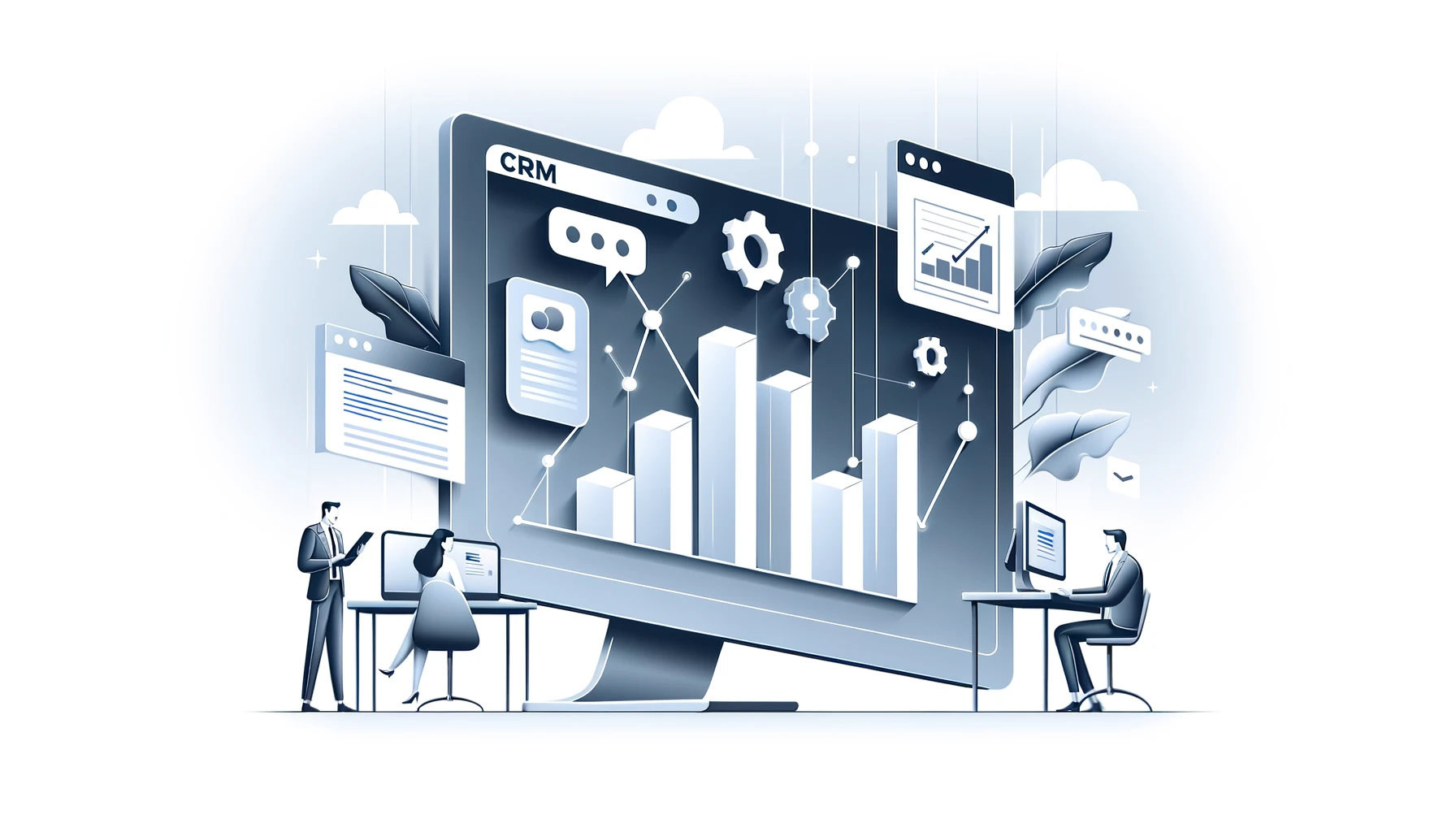
Discover the best CRM for sales to boost your team's efficiency. Streamline lead management and close deals faster with our top-rated solutions.
Understanding CRM for Sales: The Ultimate Business Tool
In today’s competitive business landscape, having a robust system in place to manage customer relationships and sales is crucial. Enter CRM (Customer Relationship Management), a game-changing tool that can fuel business growth by streamlining sales processes and enhancing customer relationships.
Implementing a CRM for sales can yield a multitude of benefits. For starters, it can offer a 360-degree view of customers, allowing sales teams to understand their needs and preferences better. This comprehensive customer view can lead to personalized interactions, fostering stronger customer relationships and, ultimately, increased sales.

Here are some key features that make CRM for sales an indispensable tool:
-
Contact Management: It allows sales teams to store all customer-related data in a centralized location. This includes contact details, communication history, and purchase records, among others.
-
Task Automation: CRM automates repetitive tasks, freeing up sales reps to focus on what they do best - selling. This includes lead generation, follow-ups, and sales reporting.
-
Sales Forecasting: It provides accurate sales forecasts based on historical data and trends, enabling businesses to make informed decisions.
Consider this example: A mid-sized company implemented a CRM for sales and saw a significant improvement in their key metrics. Their order processing time reduced by 66%, order error rate dropped by 80%, customer satisfaction score increased by 28.6%, and inventory management efficiency improved by 38.5%.
| Metric | Before Implementation | After Implementation | Improvement |
|---|---|---|---|
| Order Processing Time (hours) | 24 |
8 |
-66% |
| Order Error Rate (%) | 10 |
2 |
-80% |
| Customer Satisfaction Score (out of 10) | 7 |
9 |
+28.6% |
| Inventory Management Efficiency (%) | 65 |
90 |
+38.5% |
This example illustrates the transformative power of CRM for sales. By leveraging the right CRM tool, businesses can unlock unprecedented growth, increase sales efficiency, and enhance customer satisfaction. So, if you’re looking to supercharge your sales, it might be time to explore CRM for sales.
How CRM for Sales Drives Unprecedented Business Growth
In a world where customer is king, a CRM system acts as a throne, placing your customers at the center of your business universe. This shift in focus can lead to a significant boost in growth, and here’s how.
Streamlining Operations: CRM solutions automate and optimize daily tasks, freeing up valuable time for your sales team. With less time spent on administrative work, they can focus more on nurturing customer relationships and closing deals.
Enhanced Customer Insights: When you understand your customers better, you can serve them better. CRM systems gather and analyze customer data, providing valuable insights into their behavior and preferences. This allows businesses to tailor their offerings and interactions, resulting in higher customer satisfaction and loyalty.
Improved Decision Making: With real-time data at your fingertips, making informed business decisions becomes easier. CRM systems provide detailed reports and analytics, giving you a clear picture of your sales performance, market trends, and potential growth opportunities.
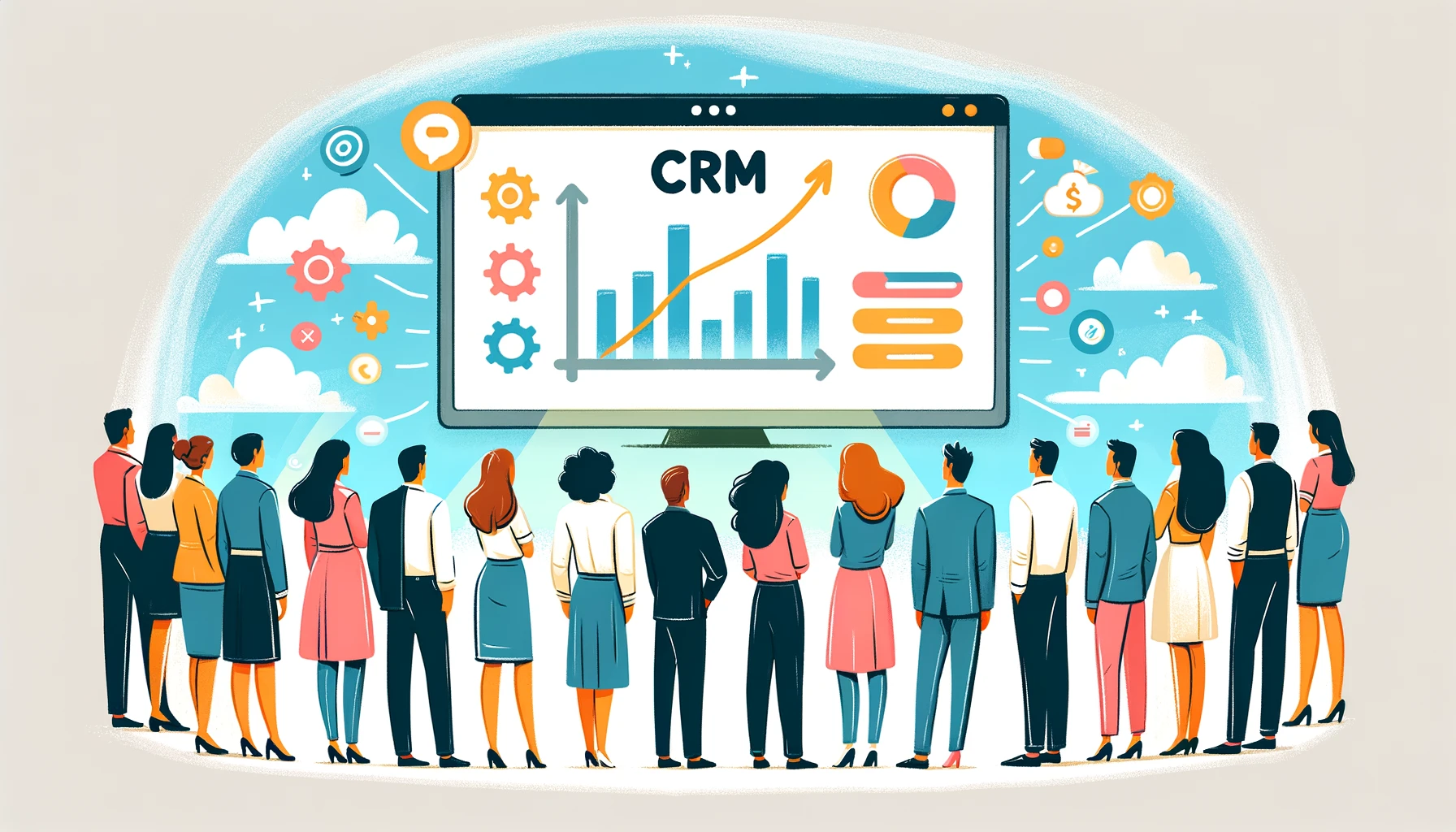
A CRM system is not just a tool, but an investment into the future of your business. It’s about understanding your customers, streamlining your operations, and making informed decisions. With CRM for sales, you’re not just surviving in the competitive business landscape, you’re thriving.
From Basics to Mastery: A Deep Dive into CRM for Sales
Understanding the basics of CRM for sales is just the first step. To truly harness its power, you need to delve deeper and master its features. This section will help you do just that.
Let’s start with the cornerstone of any CRM system - data management. Effective data management is crucial to the success of your CRM strategy. It involves collecting, storing, and analyzing customer data. This can range from contact details to buying habits and preferences. With a robust CRM system, you can easily manage this data, allowing you to create personalized customer experiences and targeted marketing campaigns.
Another vital feature of CRM for sales is reporting and analytics. These tools provide valuable insights into sales performance and customer behavior. With this information, you can make informed business decisions and identify areas for improvement. For instance, if your CRM analytics show a high cart abandonment rate, you can investigate the reasons and take steps to rectify the issue.
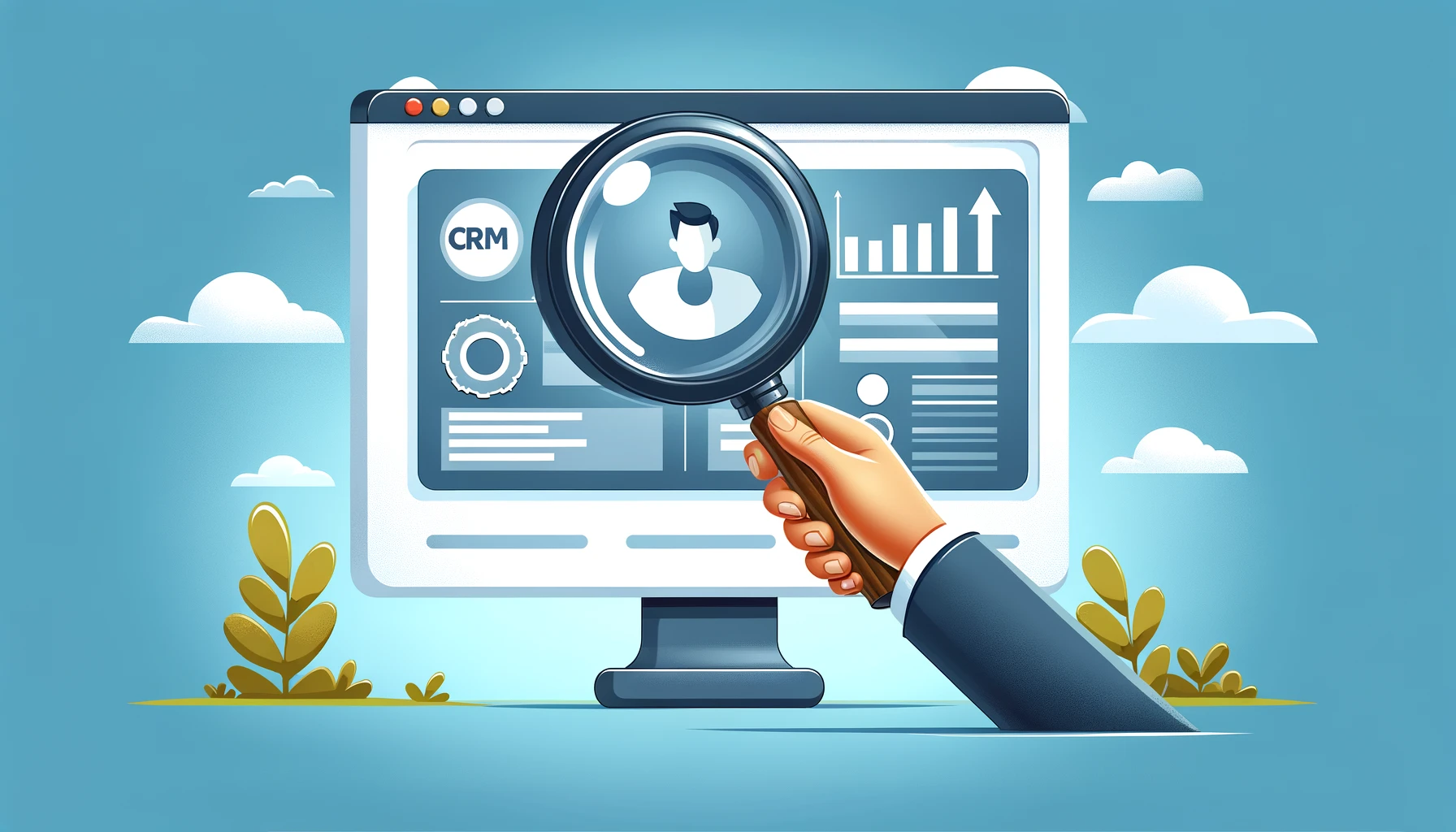
Additionally, CRM for sales offers a range of communication tools. These can automate and streamline communication with customers, saving your team valuable time. From automated emails to follow-ups and reminders, these tools can significantly improve your customer engagement and retention rates.
Lastly, let’s not forget about integration capabilities. The beauty of CRM for sales is that it can seamlessly integrate with other business tools, such as marketing automation software, social media platforms, and even accounting systems. This integration can help to create a comprehensive view of your customers and streamline your business processes.
In essence, mastering CRM for sales involves understanding and utilizing its features to their full potential. By doing so, you can not only improve your sales performance but also create a customer-centric business that thrives in today’s competitive market.
Remember, the journey from basics to mastery is a gradual process. But with the right approach and the right CRM tool, it’s a journey well worth undertaking.
Real World Examples: CRM for Sales Success Stories
The transformative impact of CRM for sales is best illustrated with real-world success stories. Let’s dive into a couple of these.
One great example is a large enterprise was grappling with a high churn rate and declining sales. With the CRM software’s advanced analytics, the firm was able to identify customer pain points and rectify them promptly. This led to a 45% reduction in churn rate and a 30% spike in sales within a year.
Another inspiring tale is of a startup that was struggling to manage its rapidly expanding customer base. The implementation of a CRM system revolutionized their operations. The software’s automation capabilities allowed the company to streamline their processes, freeing up time for the sales team to engage with customers. Consequently, their customer satisfaction score improved by 40%, and sales shot up by 50%.

These stories underscore the transformative power of CRM for sales. Whether it’s reducing churn, improving customer satisfaction, or increasing sales, the possibilities with CRM are endless. So, if you’re looking to write your own success story, it might be time to consider integrating CRM into your sales strategy.
Making Life Easier: How to Get Started with CRM for Sales
Embarking on the journey with CRM for sales might seem daunting, but it doesn’t have to be. Here’s a simple guide to get you started:
Firstly, it’s essential to identify your needs. What challenges is your sales team facing? What tasks are eating up most of their time? Answering these questions will help you understand what features you should look for in a CRM system.
Next, it’s time for some research. There are numerous CRM solutions available in the market, each with its unique features. Take the time to explore these options and find one that best fits your requirements.
Once you’ve narrowed down your choices, take advantage of free trials. This will allow you to test the system in a real-world scenario and see if it meets your expectations.
After choosing a CRM for sales, it’s time for implementation. This step requires careful planning to ensure a smooth transition. It’s advisable to start with a small team, gradually expanding to the rest of the organization.
Training is crucial during this phase. Make sure your team understands how to use the CRM system effectively. This will not only increase user adoption but also maximize the benefits of the system.
Finally, it’s important to continuously evaluate the performance of your CRM system. This involves tracking key metrics and making necessary adjustments to improve efficiency.
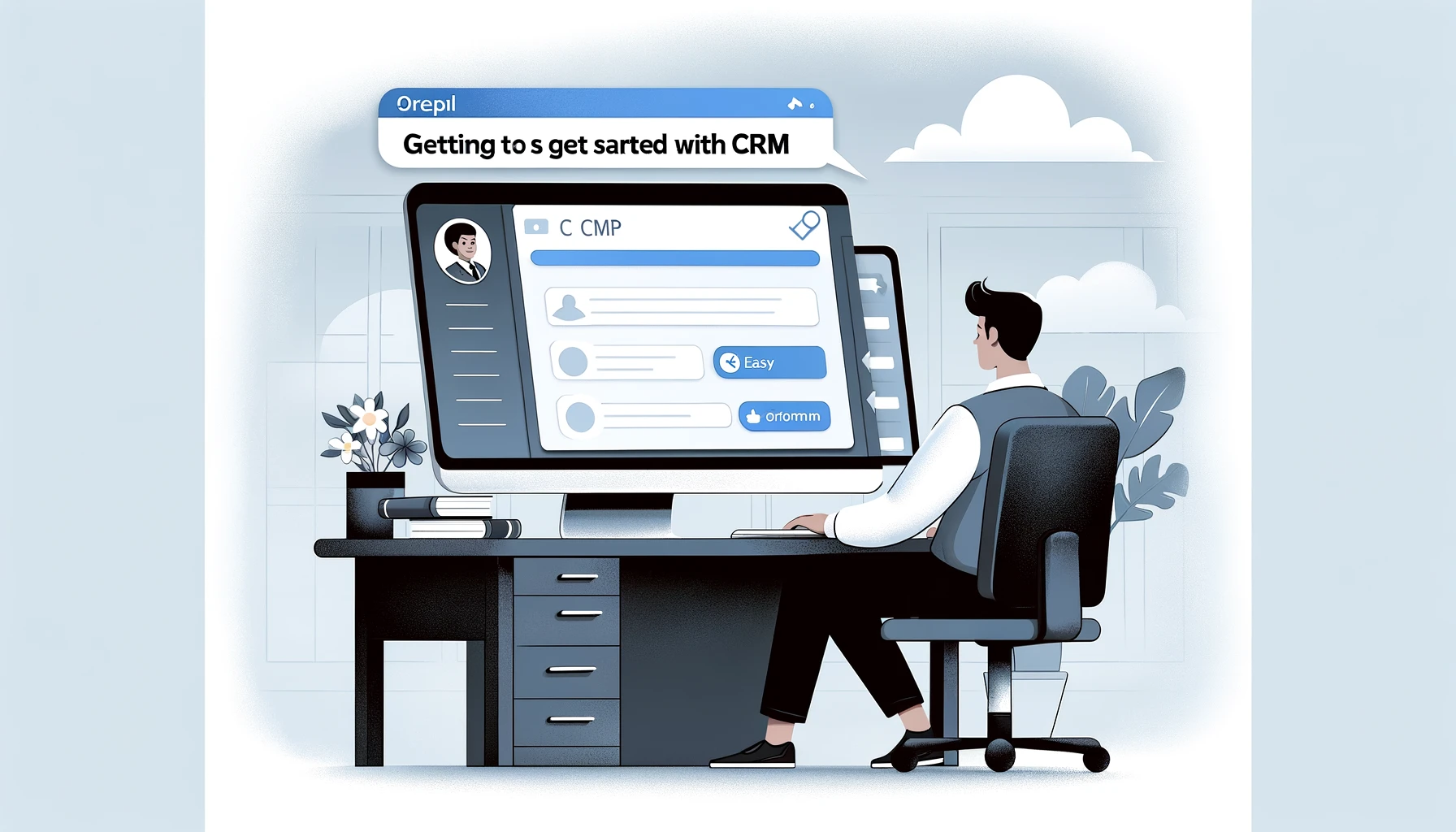
In short, implementing CRM for sales is a step-by-step process that involves understanding your needs, researching options, testing systems, careful implementation, training, and continuous evaluation. By following these steps, you can ensure a successful CRM journey that can result in significant sales growth and improved customer relationships.
Remember, the key to CRM success lies not just in the system itself, but in how effectively it’s used. So, make sure to invest time in training and evaluation to truly reap the benefits of CRM for sales.
Level Up Your Business with the Power of CRM for Sales
Harnessing the capabilities of CRM for sales can revolutionize your business operations, driving efficiency and profitability to new heights. By centralizing customer data, automating tasks, and providing actionable insights, CRM tools empower businesses to refine their sales strategies and deliver superior customer experiences.
One of the key benefits of utilizing CRM for sales is the ability to automate mundane tasks. From lead generation to follow-ups, CRM tools can handle repetitive tasks, freeing up your sales team to focus on what they do best - making sales. This not only boosts productivity but also reduces the risk of errors, ensuring a smooth and efficient sales process.

Moreover, CRM for sales offers valuable insights into customer behavior and preferences. By analyzing customer data, businesses can tailor their offerings and interactions to meet customer needs, resulting in increased customer satisfaction and loyalty. These insights can also inform sales strategies, helping businesses identify potential growth opportunities and make data-driven decisions.
Here are some ways CRM for sales can level up your business:
- Data Centralization: Store all customer-related data in one place, making it easily accessible to your sales team.
- Task Automation: Automate repetitive tasks to increase efficiency and reduce errors.
- Customer Insights: Gain a deeper understanding of your customers to personalize interactions and offerings.
- Sales Strategies: Leverage customer insights to refine your sales strategies and identify growth opportunities.
In essence, CRM for sales is not just a tool, but a strategic investment that can drive your business growth. By harnessing its capabilities, you can streamline your operations, enhance customer relationships, and make informed decisions, setting your business on the path to success.
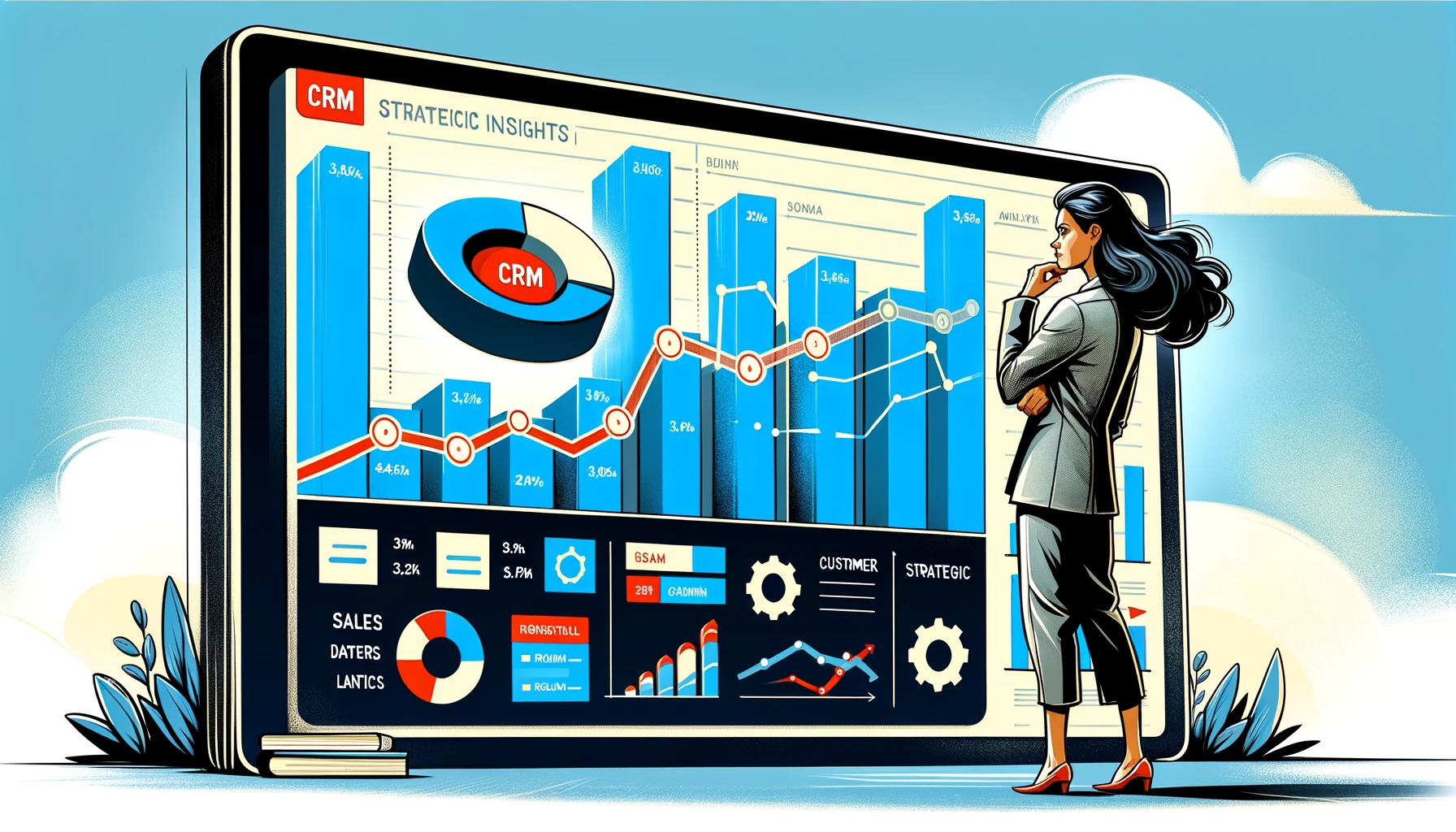
FAQs
-
Is CRM Simply a Database or More? CRM, or Customer Relationship Management, is more than just a database. While it indeed stores customer information like a database, it also integrates sales, marketing, and customer service strategies, providing tools for data management, customer interaction tracking, reporting, analytics, and task automation.
-
How Does CRM Differ From a Traditional Database? A traditional database primarily focuses on storing and retrieving data. CRM, on the other hand, not only stores data but also analyzes it to provide insights, manages customer interactions, and automates various tasks, making it a comprehensive tool for business growth.
-
What are the Key Benefits of Implementing a CRM System in a Business? Implementing a CRM system can lead to improved customer satisfaction, increased efficiency, and enhanced decision-making. It provides a consolidated platform for customer data, enables effective tracking of customer interactions, and helps in strategic planning through data analysis.
-
Can CRM Systems Integrate with Other Business Tools? Yes, CRM systems are designed to integrate seamlessly with other business tools. This integration helps in maintaining data flow between different systems, ensuring a unified approach to data management and customer relationship strategies.
-
How Does CRM Aid in Making Data-Driven Business Decisions? CRM systems analyze customer data to identify trends, preferences, and patterns. This analysis helps businesses in forecasting outcomes, tailoring marketing strategies, and making informed decisions that are driven by customer data and analytics.
Read more about low-code platform ozma.io
CRM for Beginners: Easy to Start!
CRM for Photographers: More Clients and Efficiency



